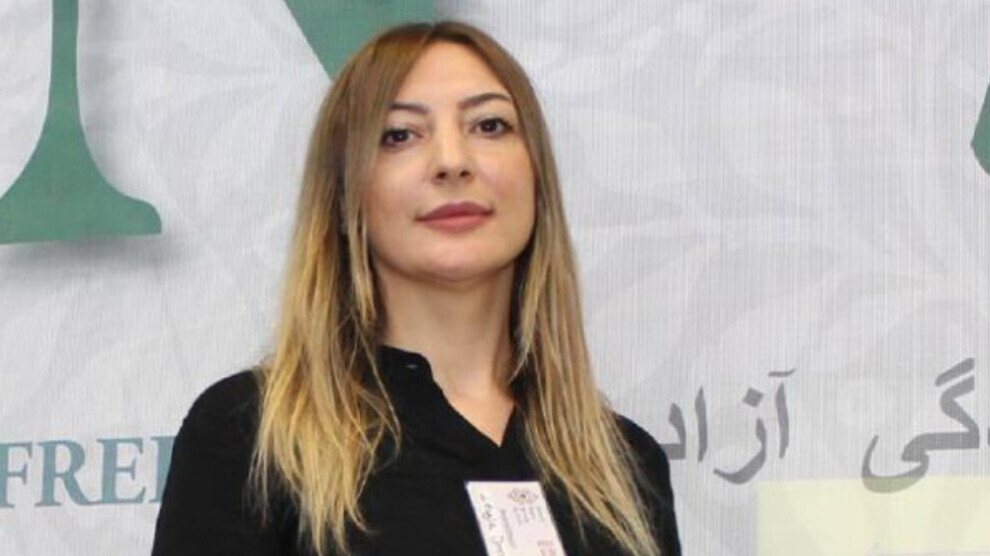Imret shares outcomes of talks with German officials
Leyla Imret said that German authorities support the process and may act as observers if requested.
Leyla Imret said that German authorities support the process and may act as observers if requested.

Leyla Imret, co-representative of the Peoples' Equality and Democracy Party (DEM Party) in Germany and a member of the delegation that met with German authorities last week, said the meetings were very positive.
Tuncer Bakırhan, co-chair of the DEM Party, held several meetings in Germany and the United Kingdom (UK) last week. The delegation led by Bakırhan met in Berlin with representatives of political foundations affiliated with German parties, civil society organizations, political party officials, and representatives from the Federal Foreign Office, including senior advisors. In addition to holding a public panel and two community meetings in Berlin, Bakırhan was accompanied by Germany co-representative Leyla Imret, who responded to questions from ANF about the meetings.
Can you share some details about the meetings and gatherings in Berlin?
A new government has recently taken office in Germany. Our goal was to strengthen our relations with the newly elected administration and to share information about the historic process we are currently going through. We also held meetings with our sister parties, civil society foundations, and especially with our community in Berlin. The aim was clear: this process, initiated by Abdullah Öcalan, is a democratic society initiative, a project to build a democratic society. The intention was both to explain this initiative and to ensure public awareness and participation. Alongside that, we held diplomatic meetings to convey these developments.
What issues stood out during the meetings? How did your counterparts approach the process?
Overall, their approach was positive. They expressed their support for the process initiated by Mr. Öcalan. Regarding the February 27 call in particular, they said, “we are following it with attention and appreciation.” Over the past ten years, the Turkish state has waged an intense war against the Kurdish people and especially against our political party. There have been mass arrests, the appointment of government trustees, arbitrary and anti-democratic practices. Despite all this, they told us, “You are extending a hand for peace. So far, the Kurdish side has taken very significant steps. What is the purpose behind this?” They were trying to understand. There were also questions such as, “Is there something going on behind the scenes? Has peace already been established? Is there enough trust to justify these steps?” Still, they saluted and welcomed the process. In fact, all of our counterparts, from political parties to government representatives, including officials from the Ministry of Foreign Affairs, had already issued a public statement following Öcalan’s call on February 27, and they reiterated their support during our meetings. They said, “We welcome this call and, if there is any role we can play, we are ready to take responsibility.” They repeated this several times in our discussions. They also asked us directly: “Is there a request for a third-party monitoring mechanism? If such a request comes from either side, we are ready to take part as observers.”
Did they express a willingness to observe or monitor the process?
Yes. They stated that if a request came either from the Kurdish Freedom Movement or from the Turkish government, they would accept it. They said, “We are ready.”
Was this proposal brought forward by the government?
Yes, it was also a proposal from the Ministry of Foreign Affairs, so we can say it reflects the government’s position. The other political parties and civil society organizations we met with also conveyed this proposal to us. We explained that steps are currently being taken toward the establishment of a parliamentary commission in Turkey, and that such a commission should assume the legal and constitutional responsibility to oversee and guide necessary changes. At the same time, we took note of their offer and acknowledged that, should both sides agree, there is already international interest in playing such a role.
Of course, we also had questions. We conveyed to both the political parties and government officials we met with that Germany could revise its domestic policy towards the Kurds. We stressed that ending the criminalization of the Kurdish people living in Germany would contribute meaningfully to the process and serve its goals.
What did your counterparts say about the issue of criminalization?
MPs from the Left Party had previously submitted a parliamentary question to the Bundestag on this matter. During our meeting, they said it was not currently on their agenda but that they would monitor how it develops and is implemented in practice. Germany and Turkey have a long and historically rooted relationship. Any political development in Turkey eventually has an impact here as well. That is why the conclusion we drew from our meetings is that this policy may take some time to change. Still, there was an overall positive atmosphere.
You also held two community meetings in Berlin. How did the community respond to the process? What kind of questions were raised?
Naturally, the community wants to understand the process. People trust themselves, their movement, and their leader (Abdullah Öcalan) but there are still many unanswered questions, which is entirely understandable. For a hundred years, the Kurdish people and the Alevi community have been subjected to policies of violence and massacres. The government has not taken any concrete steps that would satisfy society. People are demanding the physical freedom of Mr. Öcalan. They are calling for the release of prisoners and expect legal and constitutional reforms. These are the kinds of questions being raised. In order to believe the government is sincere, people are demanding practical steps. On the one hand, there are ongoing talks; on the other, people are asking: why are there attacks on the guerrillas? Is Erdoğan approaching this process positively or negatively? These are the concerns they want answers to.